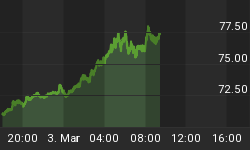Britain's inflation rate rose to 2.0% in February, exactly hitting the Bank of England's policy target, and the first time in five months that it's gone up on the month. Inflation had been trending downward since September, but maybe that down-trend is over. Recent hikes in utility bills of 20%+ should start feeding into overall inflation from next month.
Chart 1
The central bank targets the inflation rate (specifically, the headline harmonized index of consumer prices), but it worries about the state of the housing market and consumer demand. Consumer demand seems to be picking up again, and the housing marked has been reviving some since the August rate cut. At the February meeting, the Monetary Policy Committee specifically noted that any further easing risked re-igniting the housing market.
Chart 2
The BoE's repo rate has been stuck at 4.50% since last August. Many analysts still think that relatively-slow economic growth means that another rate cut is in the offing. Data are still mixed as to the extent and strength of the UK's economic recovery, but there are enough signals to make the MPC members balk at one more rate cut. They won't want to repeat the apparent error of 2003, when one "final" rate cut in July was quickly reversed in November.
No change in interest rates is likely on April 6, or indeed for the next few months. With the data still mixed, it's not clear just where the economy will be come Q4, and hence where interest rates are headed going into 2007. For now, the next key data to watch will be February's mortgage lending and consumer credit data, which come out March 29.
















